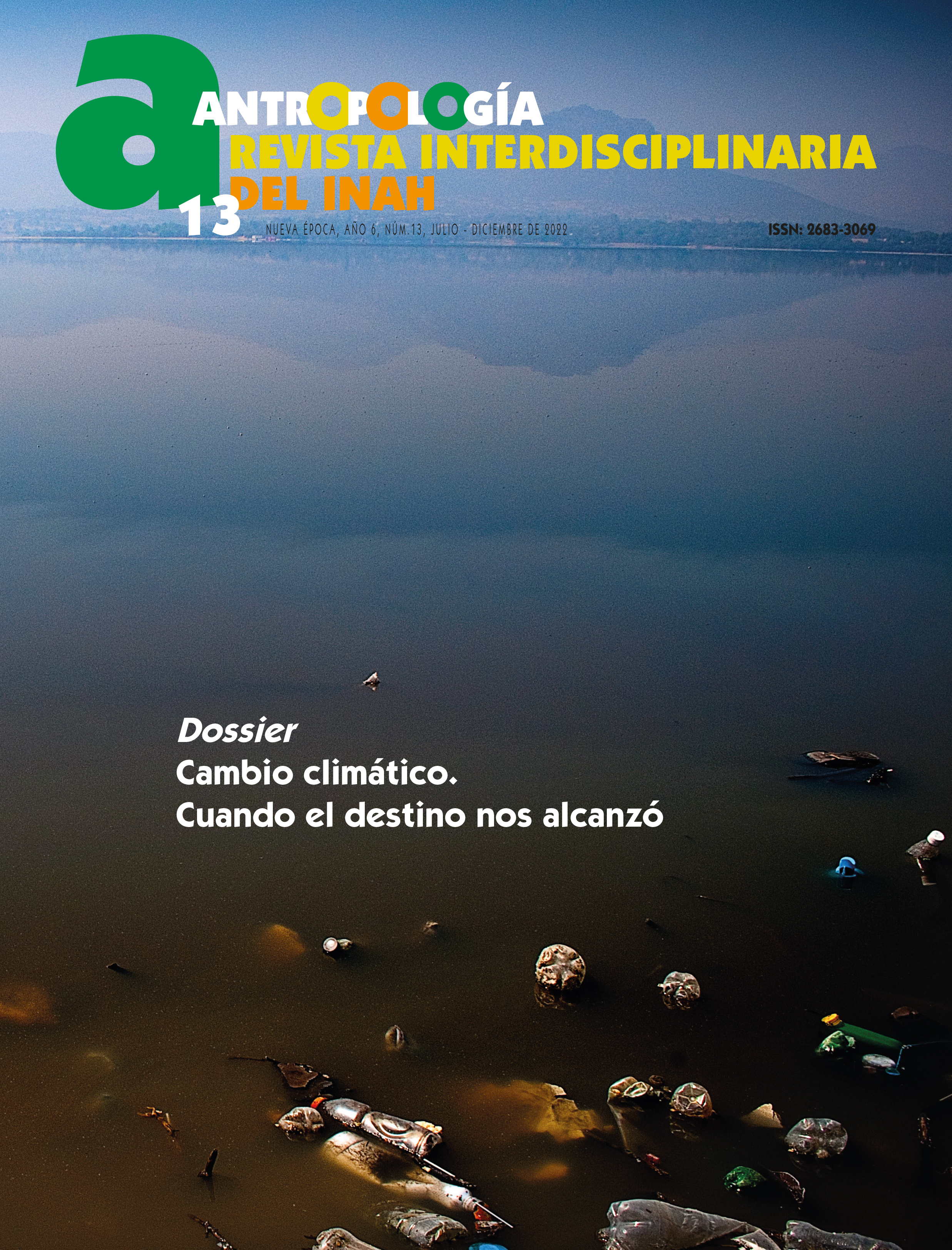Climate Change through the Metabolism of “Green” Capitalism. Considerations of Ecology According to Marx
Published 2024-04-10
Keywords
- Capitalocene, Green Capitalism, Energy Transition, Metabolism
How to Cite
Abstract
Climate change has become a current and global problem. It has sparked controversy, skepticism, and Manichean positions among the international political class and environmental activism. This article explores the edges of this problem and uses Karl Marx’s ecology, which breaks with the traditional interpretation of the supposed Prometheanism embodied in his work. Thus, climate change is not the result of diffuse global human action (Anthropocene), but the result of a historical interaction between capitalism and nature (Capitalocene). In this sense, green capitalism, through the energy transition, is nothing more than an extension of its mode of production and not a concrete solution to the general environmental deterioration.
Downloads
References
- ACOSTA, Jenny (2020), “¿Ecologismo en Marx? Una respuesta a partir de los manuscritos económico-filosóficos de 1844”, Apuntes Críticos sobre Economía y Sociedad (ACES), vol. 1, núm. 1, pp. 4-11, recuperado de: <https://cemees.org/wp-content/uploads/2020/12/portada-aces-final.pdf>.
- BELLAMY-FOSTER, John (2000), La ecología de Marx, materialismo y naturaleza, Madrid, El Viejo Topo.
- BONTRON, Cécile (2012), “Rare-earth mining in China comes at a heavy cost for local villages”, The Guardian, 7 de agosto, recuperado de: <https://www.theguardian.com/environment/2012/aug/07/china-rare-earth-village-pollution>.
- BURKETT, Paul (2015), Marx and nature: Red and green perspective, Chicago, Haymarkets Books.
- CUNHA, Daniel (2019), “Bolsonarism and ‘Frontier Capitalism’”, The Brooklyn Rail, Brooklyn, 5 de febrero, recuperado de: <https://brooklynrail.org/2019/02/field-notes/Bolsonarism-and-Frontier-Capitalism>.
- DESCOLA, Philippe (2005), Par-delà la nature et culture, París, Gallimard (Bibliothèques des sciences humaines).
- MARX, Karl (2009 [1971]), El Capital, libro I, capítulo VI (inédito), México, Siglo XXI.
- _____ (1975 [1867]), El Capital. El proceso de producción del capital, Buenos Aires, Siglo, XXI.
- MARX, Karl, y Friedrich Engels (1987), Collected works, Nueva York, International Publishers.
- MEADOWS, Donella et al. (1972), The limits to growth, Washington, A Potomac Associates Book.
- MOORE, Jason (ed.) (2016), Antropocene or Capitalocene: Nature, history and the crisis of capitalism, Oakland, Kairos [ed. para Kindle].
- ____ (2013), “El auge de la ecología-mundo capitalista (I). Las fronteras mercantiles en el auge y decadencia de la apropiación máxima”, Laberinto, núm. 38, pp. 10-26.
- PITRON, Guillaume (2018), La guerre des métaux rares. La face cachée de la transition énergétique et numérique, París, Les liens qui libèrent.
- SACRISTÁN LUZÓN, Manuel (1984), “Algunos atisbos políticos-ecológicos de Marx”, Mientras Tanto, núm. 21, pp. 39-49, recuperado de: <http://www.jstor.org/stable/27819468>.
- SAITO, Kohei (2017), “Marx en el Antropoceno: valor, fractura metabólica y el dualismo no-cartesiano”, Marxismo Crítico, recuperado de: <https://marxismocritico.com/2017/11/29/marx-en-el-antropoceno-valor-fractura-metabolica-y-el-dualismo-no-cartesiano/>.
- SCHAFFHAUSER, Philippe (2020), Critiquer le capitalisme : Une mise en abyme du monde contemporain, París, L’Harmattan.
- TORDJMAN, Hélène (2021), La croissance verte contre la nature : critique de l’écologie marchande, París, La Découverte.
- VEBLEN, Thorstein (2000 [1899]), Teoría de la clase ociosa, Buenos Aires, Ediciones elaleph.com, recuperado de: <https://www.elaleph.com/libro/Teoria-de-la-clase-ociosa-de-Thorstein-Veblen/1051/>.
- WAINSZTEIN, Jacques (2006), “Quelques réflexions autour de domination formelle et domination réelle”, Temps critiques, núm. 14 recuperado de: <http://tempscritiques.free.fr/spip.php?article164>.
- WILLIAMS, Raymond, 2001, El campo y la ciudad, Buenos Aires, Paidós.

